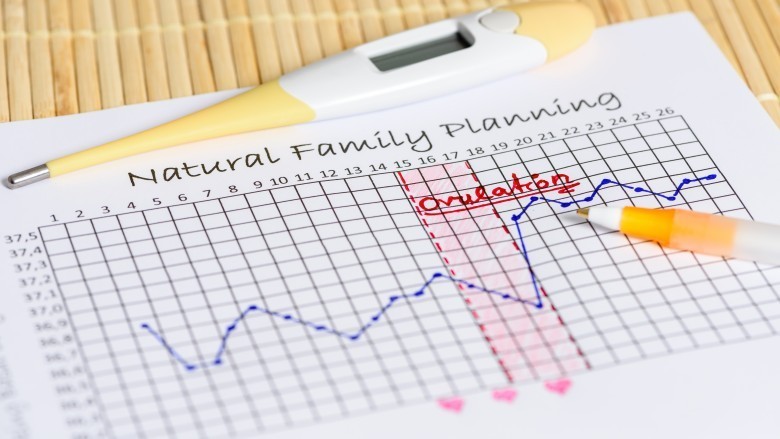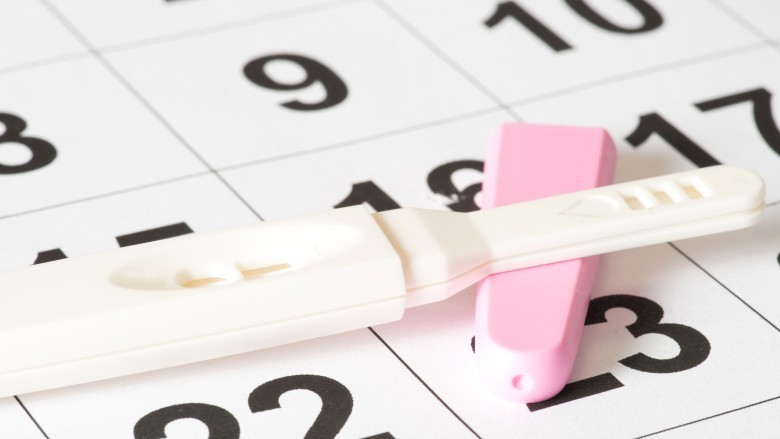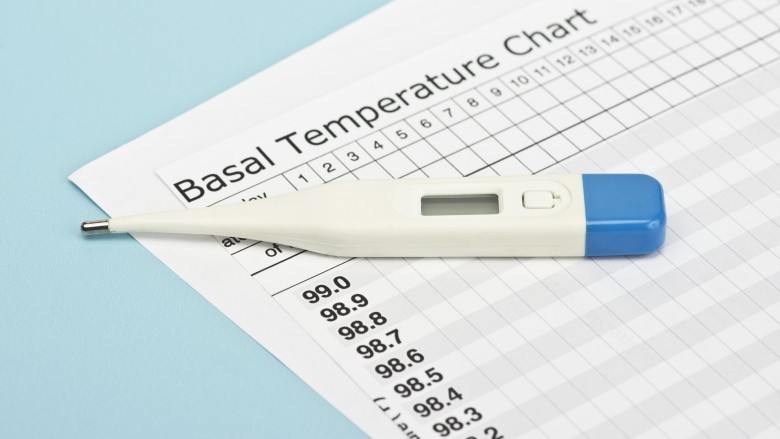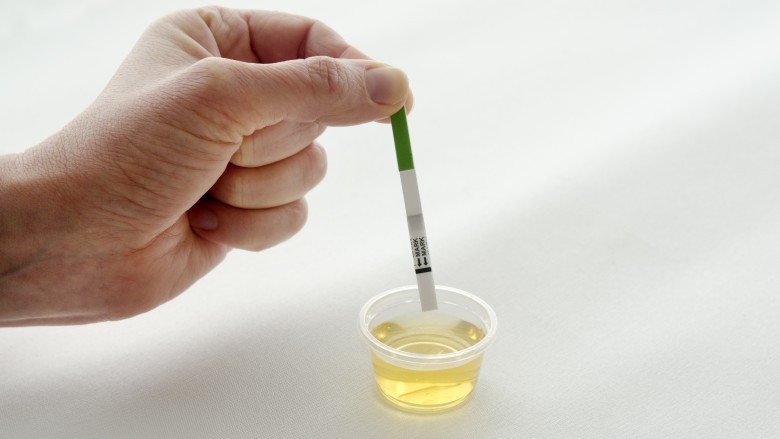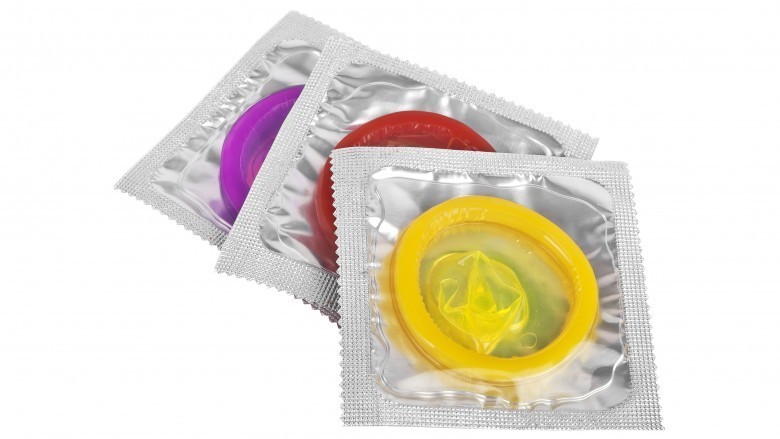What Really Happens When You Decide To Try Natural Family Planning?
Deciding if and when to have a baby is a big decision. If you decide now isn't the right time, or you never want to have children, there are a number of different birth control options ranging from hormonal to non-hormonal, short-acting to long-acting, and reversible to permanent. The vast majority of birth control options have the potential for some side effects.
Whether it's religious preference, because hormones are not well-tolerated, or because there are still side effects of non-hormonal birth control (like the potential for excessive bleeding with the copper IUD), some women opt for options that put nothing in the body. And many people report that condoms interrupt the moment of intimacy, so some of these couples decide to try natural family planning. What exactly is natural family planning, and what happens if you decide to try it? I spoke to several women who have used it to find out.
What is natural family planning?
Natural family planning is not reserved only for birth control. In fact, some couples use it to help them get pregnant. Still, the principles of natural family planning suggest that there are only certain times during a woman's cycle during which pregnancy is possible, and if intercourse happens during this time, pregnancy is more likely. As a form of birth control, the idea is to avoid intercourse during this window.
Natural family planning methods are also referred to as fertility awareness methods. By knowing your most fertile window, you can either avoid pregnancy or plan for it. According to the American Pregnancy Association, sperm can survive in the uterus or fallopian tubes for up to five to seven days, but the released egg survives for at most 24 hours, and a woman is most fertile in the week before ovulation until a day after ovulation has occurred.
You'll get to know your body very well
The crux of natural family planning requires you to get to know your body's biological markers for fertility. This involves tracking the changes to your body throughout the month in very concrete and specific ways. For Liz Granger, this approach has not only been effective, but is a feminist approach to birth control. "Natural family planning is feminist because it connects you more deeply with the normal, predictable rhythms of your body," she told me. "It helps you see your fluids not as gross or foreign, but as evidence for your cycle and health."
Granger added that natural family planning allowed her to forego pharmaceuticals that she said are often marketed to say that periods are inconvenient and embarrassing. "Natural family planning helps you build confidence and trust in your physical body," she said. "It's like a private conversation with yourself. When I've charted journal-style in addition to temps, I've learned empathy for my body; instead of worrying why my period was delayed, I could look back at travel or stress and see how clearly those changes affected the machine of my body."
'Taking Charge of Your Fertility'
Several women I spoke with, including Granger, talked about the same book: Taking Charge of Your Fertility by Toni Weschler. Laura Trethaway, who has used natural family planning for both birth control and to help her get pregnant, told me the book was a "huge eye opener" for her. "I learned things about my body that had been a mystery my entire adult life," she said, adding that prior to reading the book she had no clue what was going on with her cervical mucus. "I would wonder if I had an infection or I wouldn't notice it at all," she said. "It wasn't until I read Taking Charge of Your Fertility that I realized that it was a natural process that followed a set pattern."
Cervical mucus
Speaking of cervical mucus, what's the deal with that and how can tracking it help you understand ovulation patterns? Throughout your cycle, the consistency of cervical mucus, which is the fluid secreted by your cervix, changes. These changes are impacted by hormone levels that also change throughout your cycle. As you get closer to ovulation, increases in estrogen lead to what the American Pregnancy Association calls "fertile-quality" mucus, described as clear and stretchy with the consistency of egg whites. The texture and pH of the cervical mucus during this time protects sperm on its journey to fertilize the egg. This means if you're trying to avoid pregnancy, this is probably not the time to have sex. On the other hand, if you want a baby, this might be your most fertile window.
Basal body temperature
Noticing changes in your cervical mucus patterns throughout the month is just one way to track ovulation. Tracking your body temperature is another way to know where you're at in your cycle, but it isn't done using just any old thermometer any time of the day. To get a good sense of your body's basal temperature patterns, BabyCenter suggests tracking every day for a few months before relying on it to monitor ovulation.
Generally speaking, before ovulation your basal body temperature may range from about 97.2 to 97.7 degrees, but the day after you ovulate, you will see an increase of just 0.4 to 1.0 degree, which will last until your next period. This very small change in body temperature is why it's so important to get a basal thermometer, which is more sensitive than a standard thermometer you might buy when you're sick. It's also important to measure your temperature at the same time of day, first thing in the morning before you stand up and start moving around.
For Trethaway, this was the most annoying part of natural family planning. "You have to take your temperature before you stand up, every day at the same time, and that might work for some people, but I just don't work on a morning schedule like that," she said.
Home ovulation tests
Research has shown that home ovulation tests are effective at detecting ovulation during peak fertility. In fact, some studies suggest that measuring urinary LH levels (like in home ovulation tests) is a better predictor of ovulation than other natural family planning methods. These studies have found that while changes in cervical mucus and basal body temperature correlate with ovulation, they often overestimate the length of the fertile window.
Although home ovulation tests may be more accurate than tracking basal body temperature and mucus, they're also more expensive (in that it costs nothing to track your cervical mucus and a basal thermometer just requires a single startup cost). Still, depending on your goals, combining methods may be most effective.
Apps for tracking
While it's possible to track everything you need for natural family planning using pen and paper, in today's technology age, of course there's a smartphone app for that! In fact, there are several. The women I spoke to mentioned the Kindara fertility tracker, the OW ovulation tracker, and an app that serves as a companion to Taking Charge of Your Fertility. Still, these are just a few of the apps out there. In fact, there's a list of the 10 best fertility apps, just in case you are having trouble deciding.
How effective is natural family planning?
Like many forms of birth control or strategies to get pregnant, part of what makes natural family planning effective in either direction is how well you stick to the routine. Just like oral contraceptives aren't effective if you miss them, natural family planning isn't effective if you skip the steps necessary for tracking. Some research suggests that with perfect use, natural family planning is 95 percent effective at preventing pregnancy, and that with typical use it's about 76 percent effective.
On the other hand, everyone I spoke with who used natural family planning in an attempt to get pregnant found it incredibly effective and accurate. Many women also told me they got to a point where they could tell they were ovulating, even without tracking every day. Lyndie Giles, who used natural family planning to get pregnant, is one. "I now know when I am ovulating without ovulation strips or using the temperature method," she said. "I have mild cramping and I start having moderate mucus discharge. I also have a slightly stronger sex drive during that three to four day period."
Backup methods
While you may start to find your cycle more intuitive, if you aren't at a point in your life where pregnancy would be an acceptable option, it's still in your best interest to actively track your biomarkers and either avoid sex or use a backup method of birth control, like condoms, when you're in your fertile window.
Amy Olson, who started using natural family planning after a health scare related to birth control, plans to get pregnant after her upcoming wedding, but wants to hold off for now and has been using an app to track her cycle. "It's very basic, but now using it for three years it helps predict when my period is due and when I'm ovulating," she said. "In the meantime, we use condoms too when I'm near or during ovulation, but I'm excited we know enough about my body now [that] we'll be not using condoms at all starting in the fall." Condoms are also a good idea if you lose track of your biomarkers and are no longer 100 percent sure where you are in your cycle.
Risks of natural family planning
The great thing about natural family planning is that the only real risk is that it might not work. You may get pregnant when you aren't planning to, or you may not be able to get pregnant even if you're doing everything by the book. Trethaway noted it is important to really think about if you're prepared for what would happen if natural family planning failed to prevent pregnancy. "It's not 100 percent effective for preventing pregnancy," she said. "It's important to consider where you are in your life before using it as a contraceptive method."
Is natural family planning right for you?
Giles told me that she would absolutely recommend natural family planning for couples trying to get pregnant. "It is accurate and free to monitor your temperature," she said, though added that due to the commitment required she does not recommend it as a form of contraception. "Even with my obsession with conceiving, there were mornings that I forgot to take my temperature immediately upon waking."
While many women are successful using natural family planning to avoid pregnancy, and several women I spoke to did recommend it, Planned Parenthood notes that natural family planning may not be a good fit for you if you have more than one sex partner, don't want to keep track of your safe days, or are taking medications that may interfere with backup methods you use during fertile days, among other considerations. The organization also suggests that women with irregular periods or sexually transmitted infections should not rely on natural family planning, as the biomarkers may be impacted in a way that makes them difficult to track.
Ultimately, what type of family planning you use is a personal decision, and only you can decide what is best for you.
